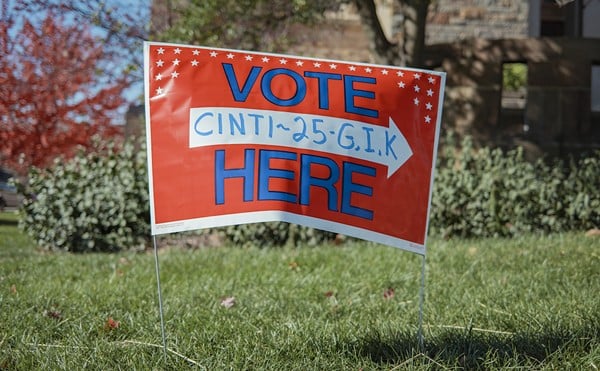S
ome people believe in a feel-good theory that’s known as “American exceptionalism.” It holds that the United States is unique among nations in its regard for liberty and egalitarianism, and is destined for great things due to the defining characteristics of its hard-working, freedom-loving people.
Here’s how the theory was described in the introduction to The Idea of America: Reflections on the Birth of the United States, written by historian Gordon S. Wood:
“Our beliefs in liberty, equality, constitutionalism, and the well-being of ordinary people came out of the Revolutionary era. So too did our idea that we Americans are a special people with a special destiny to lead the world toward liberty and democracy.”
Wow, we must be pretty cool. (Suck on it, Australia!)
In reality, statistics show the United States lags behind many other democracies in key indicators including economic mobility, public safety, accessibility to health care and higher education, average life span — even mathematical and science test scores among students. You know, general pursuit of happiness stuff.
Like an insecure teenager attending his first middle school dance, however, we insist on continually being told how great we are — any facts to the contrary be damned.
Well, here is one way that the United States is exceptional: We’re the only one of the nations that’s a member of the Group of Eight (G8) to still use the death penalty and execute prisoners. The G8 is composed of nations with the world’s largest economies; other members are Canada, France, Germany, Italy, Japan, Russia and the United Kingdom.
Yes, even our old Cold War nemesis, the nations that once formed the Soviet Union, don’t execute prisoners anymore with the exception of Belarus, where two people were executed in 2011. (That nation is led by Alexander Lukashenko, a de facto dictator who is trying to quash political dissent.)
These startling statistics are highlighted in a report issued recently by Amnesty International. Like it does every year, the human rights group reviewed the use of death sentences and executions throughout the world in 2011.
At least 20 countries are known to have carried out executions last year, which constitutes about 10 percent of the world’s nations, according to the report.
The figure is a reduction from 2010, when 23 nations were reported to have implemented death sentences, and is a major decrease compared to the rate a decade ago, when 31 nations were known to have carried out executions.
At least 676 executions occurred worldwide last year, an increase on the 2010 figure of at least 527 executions worldwide. The jump is mostly due to a significant increase in “judicial killings” in Iran, Iraq and Saudi Arabia.
Of that amount, 43 executions were carried out in the United States. Once again, only the Terrible Trio — Iran, Iraq and Saudi Arabia — surpassed that number.
Other nations that executed prisoners last year were Afghanistan, Bangladesh, Belarus, China, Egypt, Malaysia, North Korea, the Palestinian Authority, Somalia, South Sudan, Sudan, Syria, Taiwan, United Arab Emirates, Vietnam and Yemen.
My, what stellar company we keep.
It should be noted the figure doesn’t include the thousands of people who are suspected of being executed in China last year. Such figures there are considered a state secret.
Nevertheless, overall trends appear headed in the right direction. In November, Latvia abolished the death penalty, making it the 97th nation to end the use of capital punishment.
Overall, 175 of the 193 member states of the United Nations were execution-free last year.
“Our message to the leaders of the isolated minority of countries that continue to execute is clear: You are out of step with the rest of the world on this issue and it is time you took steps to end this most cruel, inhuman and degrading punishment,” Salil Shetty, Amnesty’s secretary general, has said.
Meanwhile, at least 1,923 people were given death sentences in 63 nations last year. This represents a decrease from the 2010 figure of at least 2,024 death sentences worldwide.
It’s believed about 18,750 people were under sentence of death worldwide at the end of 2011, which is the minimum figure based on numbers compiled by Amnesty.
Of particular concern to Amnesty last year was the increased use and pursuit of the death penalty by military courts and tribunals, including against civilians, in seven nations — one of which was the United States.
Still, opponents of the death penalty have some cause for hope.
Last year Illinois became the 16th state to end the death penalty, and the third state to enact legislation abolishing capital punishment since 2007. Also, a moratorium on executions was imposed in Oregon.
While signing the bill that abolished the death penalty in Illinois, Gov. Pat Quinn said, “It is impossible to create a perfect system, one that is free of all mistakes, free of all discrimination with respect to race or economic circumstance or geography. To have a consistent, perfect death penalty system, I have concluded, after looking at everything I’ve been given, that that’s impossible in our state. I think it’s the right and just thing to abolish the death penalty.”
Unfortunately, John Kasich doesn’t share the sentiment. Ohio had five executions last year; the only states that put more people to death were Texas (13) and Alabama (6).
Additionally, the Death Penalty Information Center recorded 78 new death sentences in 2011, which is a major drop compared to the average of 280 death sentences imposed per year in the 1980s and ’90s.
The trend, while good, isn’t enough. Virtually all candidates who run for president must appear tough by supporting capital punishment, even though studies show it doesn’t deter crime. Rick Santorum supports it, despite his beloved Catholic Church being generally opposed; so does Mitt Romney.
Even President Obama equivocates. Here’s what The Washington Post wrote in 2007: “Obama wrote in his recent memoir that he thinks the death penalty ‘does little to deter crime.’ But he supports capital punishment in cases ‘so heinous, so beyond the pale, that the community is justified in expressing the full measure of its outrage by meting out the ultimate punishment.’"
Forget the fantasies of conservatives: We don’t need to worry about the dreaded Sharia Law when the United States already has shown such a propensity for spilling blood.






